
CHICAGO SYMPHONY ORCHESTRA
TWENTY-FIFTH SEASON
CSO MUSIC NOW
Jessie Montgomery Mead Composer-in-Residence
Monday, November 21, 2022, at 7:00
Common Ground
Musicians from the Chicago Symphony Orchestra
Mark O’Connor Violin
Maggie O’Connor Violin Xavier Foley Bass
foley Irish Fantasy
Matous Michal, violin Xavier Foley, bass foley Etude No. 10 (The Dance) Xavier Foley, bass o’connor
String Quartet No. 3 (Old-Time)
Matous Michal, violin Mark O’Connor, violin Danny Lai, viola Chris Wild, cello
foley Good Times
World premiere. CSO MusicNOW commission
Susan Synnestvedt, violin Nancy Park, violin Beatrice Chen, viola Katinka Kleijn, cello Xavier Foley, bass
2 TWENTY-FIFTH SEASON
o’connor
Strings and Threads Suite Fair Dancer Reel
Sailor’s Jig Captain’s Jig Off to Sea
Pilgrim’s Waltz Road to Appalachia Shine On Cotton Pickin’ Blues Pickin’ Parlor Rag Queen of the Cumberland Texas Dance Hall Blues
Swing 11:11 Sweet Suzanne
Mark O’Connor, violin Maggie O’Connor, violin Susan Synnestvedt, Matous Michal, Mihaela Ionescu, first violins Nancy Park, Hermine Gagné, Gabriela Lara, second violins Danny Lai, Beatrice Chen, violas Katinka Kleijn, Chris Wild, cellos Xavier Foley, bass
There will be no intermission.
Major support for CSO MusicNOW is generously provided by the Zell Family Foundation, Cindy Sargent †, the Sally Mead Hands Foundation, and the Julian Family Foundation. This program is partially supported by a grant from the Illinois Arts Council Agency.
† Deceased
CSO.ORG 3
comments
xavier foley
Born August 9, 1994; Marietta, Georgia
Irish Fantasy
Xavier Foley on Irish Fantasy
Always in search of new and exciting works for the double bass, I’ve come to love composing and thoroughly enjoy expanding the repertoire for my instrument. The exotic sounds in Irish folk music have always intrigued me. My Irish
Etude No. 10 (The Dance)
Xavier Foley composed twelve etudes for solo bass during the first two years of the COVID-19 pandemic. Each etude in the set has its own unique character and illustrates Foley’s talents as a bass player and innovative composer for his own instrument—one often labeled as limited in its expressive possibilities: a stereotype that Foley challenges with aplomb. The Dance begins
Fantasy has its roots in the Irish folk tune, “The Clergyman’s Lament” by Turlough O’Carolan. My goal was to create a more substantial and virtuosic showpiece, inspired by Max Bruch’s Scottish Fantasy.
with the presentation of a sultry syncopated melody. Foley quickly introduces virtuosic variations on that lyrical theme juxtaposed by contrasting passages of fiery tension. The result is a tantalizing dance between the player and his instrument.
—Frances Atkins
mark o’connor
Born August 5, 1961; Mountlake Terrace, Washington
String Quartet No. 3 (Old-Time) (2007)
Mark O’Connor on String Quartet No. 3 (Old-Time)
String Quartet no. 3 (Old-Time) was composed to mark the occasion of 400 years of history dating from the days of the first European settlements. My specific task from the Hudson Commission was to concentrate music based on the natural habitat and beauty of the Hudson as well as on the time of the first European settlers. It was natural for me to think about old-time fiddling in this light. In 1909, Washington Irving described the Catskill Mountains as a “dismembered branch of the Appalachian Mountains.” My own
Dutch ancestors settled in the Hudson Valley in the early 1600s and eventually traveled down the Appalachians to settle in the South in the early 1800s. The old-time fiddling that dominated those areas along that route is the musical lan guage utilized in creating this string quartet. For the musical genesis of the quartet, I initially cre ated phrases from the fiddle that were molded out of old-time fiddling tradition. With technical twists and turns, the phrases became unique and new, but all the while still connected to the tra dition. It is these phrases that I used as material to create the string quartet. Through the process
4 TWENTY-FIFTH SEASON
of composing, techniques such as reharmoni zation, development, and canonic applications spill over each other like the Hudson tributar ies in the Adirondacks. The counterpoint of the quartet invigorates and establishes itself. The result is a wholly participating body emphasizing
xavier foley Good Times (2022)
Xavier Foley on Good Times
My string quintet Good Times was designed to emulate emotions of happiness and bliss. My early childhood memories of being in church—listening to musicians sing gospel
mark o’connor
Strings and Threads
Suite (1986)
transitions from the traditional to the contempo rary in sound and style. The music here is no lon ger fiddle music, as the inventions of the quartet embark on a new story, a new way to play, and with a new musical idea to put forward.
and soul music—is the main drive behind this soul-infused classical work. With a mix of classi cal form, instrumental interplay between musi cians, and the magic touch of gospel and soul music, I bring you: Good Times.
(Arranged by Mark O’Connor and Edgar Meyer)
Mark O’Connor on Strings and Threads Suite
Strings and Threads Suite for violin and string orchestra is a piece comprising thirteen tunes. In 1986, the Tennessee Dance Theater commis sioned the suite to be performed at Nashville’s Summer Lights Festival. A few years later, Edgar Meyer provided the beautiful string orches tra arrangement that is contained in this score. The individual tunes are in various folk styles appearing in a chronological order, not only rep resenting the evolution of American folk music, but also mirroring my own family’s migration from Ireland and Holland to America. It traces
the family’s route through the thirteen colonies initially and then, eventually, west during World War I—nearly 300 years later. I wrote the pieces in a manner and style that I felt my family could have heard along the way. The suite begins with Irish music, perhaps similar to the music my family brought with them, then—in a thoughtful progression—music they must have encountered while living in early America. Strings and Threads musically describes how folk music styles hundreds of years apart are interconnected— possessing a common thread—from an Irish reel to jazz.
CSO.ORG 5 COMMENTS
Xavier Foley Composer, Bass
Xavier Foley is known for communicating his virtuos ity and passion for music on the double bass, which is rarely presented as a solo instrument. Foley is the first-prize winner of the 2016 Young Concert Artists International Auditions, winner of the 2014 Sphinx Competition, and a 2018 recipient of an Avery Fisher Career Grant. He has performed in recital at Shriver Hall in Baltimore, Rockport Music in Massachusetts, La Jolla Chamber Music Society, the Isabella Stewart Gardner Museum in Boston, National Gallery of Art in Washington (D.C.), and the Harriman-Jewell Series in Missouri. An avid chamber musician, he has appeared with the Chamber Music Society of Lincoln Center, Marlboro Music Festival, Tippet Rise Music Festival, Bridgehampton Chamber Music Festival, and Skaneateles Festival.
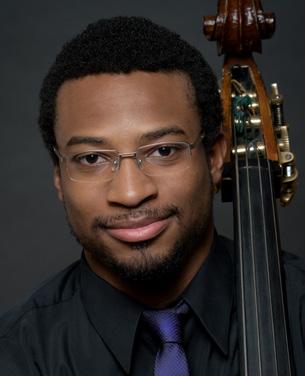
Foley’s composition For Justice and Peace, pre miered by the Sphinx Organization at Carnegie Hall in October 2022, was co-commissioned by both organizations. It has since been performed by the Atlanta Symphony, New West Symphony, Oregon Symphony, and the Saint Paul Chamber Orchestra. Foley’s bass concerto, Soul Bass, commissioned by the Atlanta Symphony, was premiered this past March, and the Baltimore Symphony Orchestra performs it this season. Upcoming commissions include those from Santa Fe Pro Musica; the Cabrillo Festival in conjunction with the Mahler Foundation; a Sphinx Organization co-commission with Carnegie Hall and the New World Symphony; and the Oregon Symphony, which named him artist-in-residence for the next three seasons.
An alumnus of the Perlman Music Program, Xavier Foley earned a bachelor’s degree from the Curtis Institute of Music, where he worked with Edgar Meyer and Hal Robinson. His double bass was crafted by Rumano Solano.
Mark O’Connor Composer, Violin
Mark O’Connor began his creative journey at the feet of American fiddling legend Benny Thomasson and the iconic French jazz violinist Stéphane Grappelli. He has melded these influences into a new American classical music, perpetuating his vision of an American school of string playing. O’Connor has won three Grammy awards and seven CMA awards, as well as several national fiddle, guitar, and mandolin champion titles. His distinguished career includes representing the United States Information Agency in cultural diplomacy to six continents and performing in the presence of several U.S. presidents.
After a series of albums for Rounder and Warner Bros., including The New Nashville Cats, his recordings for Sony Classical with Yo-Yo Ma, Appalachia Waltz and Appalachian Journey, gained O’Connor worldwide recognition as a leading proponent of a new American musical idiom. O’Connor’s Fiddle Concerto, released on Warner Bros., has become the most-performed violin concerto composed in the last fifty years. On his own OMAC Records label, the Baltimore Symphony Orchestra recorded his sweeping Americana Symphony, while his groundbreaking ninth concerto, The Improvised Violin Concerto, was recorded in Boston’s Symphony Hall. His touring group, the Mark O’Connor Band, consist ing of family members (wife, son, and daughterin-law), debuted at no. 1 on Billboard’s bluegrass album chart, and their first album, Coming Home, won a Grammy Award in 2017. He also tours nationally as the Mark O’Connor Duo with his wife Maggie and performs his original concertos with symphony orchestras.
Mark O’Connor has authored a series of edu cational books entitled The O’Connor Method, which features American music styles, creativ ity, cultural diversity, and Western classical technical training.

6 TWENTY-FIFTH SEASON
profiles
PHOTOS BY MATT DINE, DESSA ROSE
Maggie O’Connor Violin
Violinist and American fiddler Maggie O’Connor is a Grammy Award–winning musician who frequently performs in a duo with her husband, violinist and composer Mark O’Connor. With a unique background in both traditional classical violin training and American musical styles, she continues her mission to show that violinists can and should participate in everything the instru ment has to offer.
Maggie O’Connor has regularly performed at the Grand Ole Opry with her husband in both band and duo configurations. In the classical-music world, they have performed together in venues around the globe, including the Leopold Auer Music Academy in Hungary and the Konzerthaus Berlin celebrating the
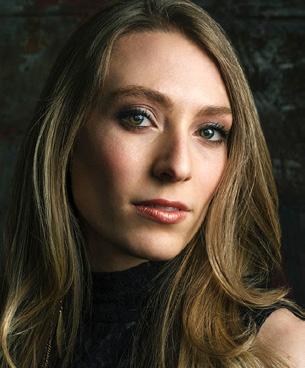
centennial birthday anniversary of violinist Yehudi Menuhin. For seventy weeks during the COVID-19 pandemic, the couple successfully hosted a live virtual show entitled Mondays with Mark and Maggie, performing and sharing stories about their musical experiences in addition to featuring special guests. Along with the Mark O’Connor Band, she has performed in her hus band’s ensembles ranging from Hot Swing and American Classics to An Appalachian Christmas.
Growing up in a musical family in the suburbs of Atlanta, Georgia, Maggie O’Connor began playing the violin at the age of seven in a fam ily band and concurrently took classical violin lessons with Larisa Morgulis. She later continued her training at the Peabody Institute of the Johns Hopkins University, where she studied with Herbert Greenberg.
Maggie O’Connor resides in North Carolina with her husband. She plays a 1996 violin made by Lukas Wronski and uses D’Addario strings.
A statement from the artist Donovan Foote
The goal for each poster was to create something consisting of all or some of the program’s featured instruments. For the Common Ground poster, the instrument depicted is assembled from two violins at slightly different angles, with a paper double-bass headstock. To suggest the traditional fiddle sounds heard in Mark O’Connor’s and Xavier Foley’s music, other collage elements frame the instrument in Celtic knot work and an Appalachian landform map, as well as stars and stripes. The final image, like the program’s music, feels familiar but modern.
Artwork available at symphonystore.com/musicnow
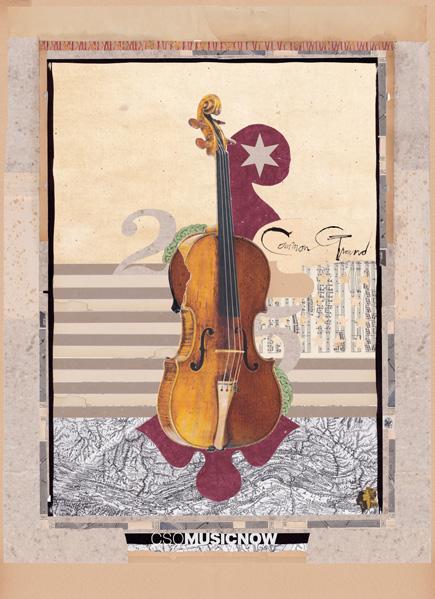
CSO.ORG 7 PROFILES
PHOTO BY JOHN DAVID PITTMAN
† Deceased
Major support for CSO MusicNOW is generously provided by the Zell Family Foundation, Cindy Sargent †, the Sally Mead Hands Foundation, and the Julian Family Foundation.
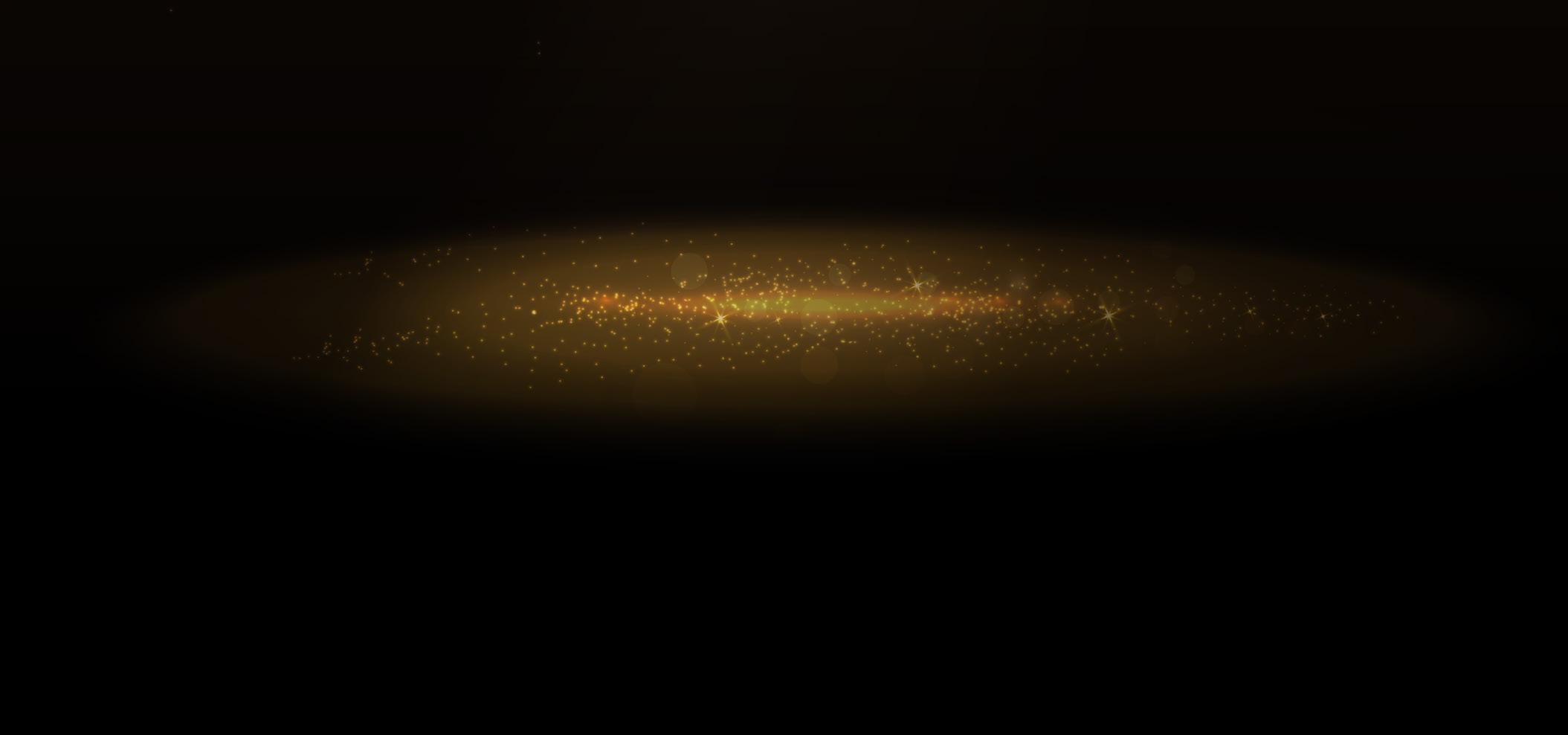
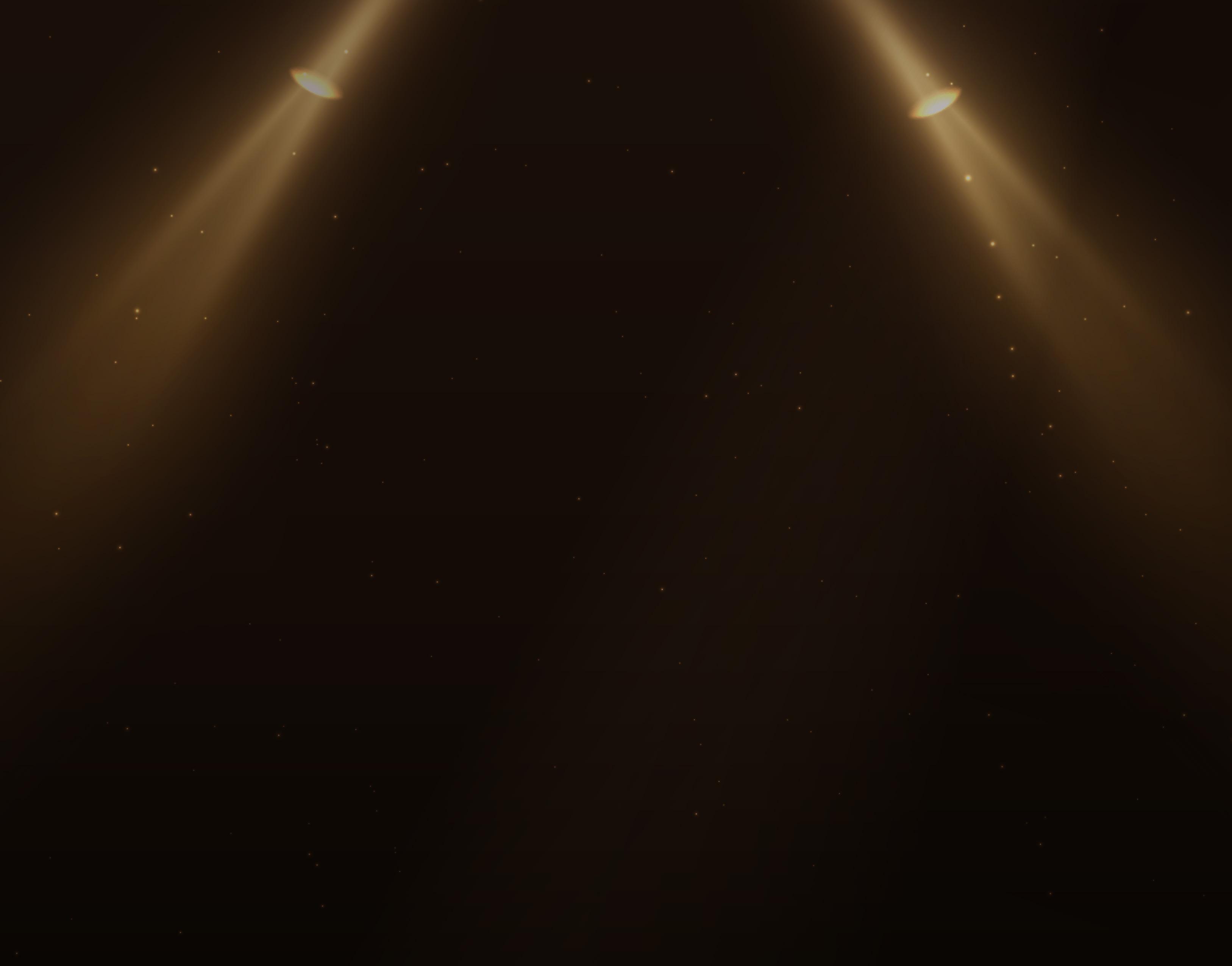



Create Your Own series and save 15% Mavis Staples with special guest Celisse FEB 4 Ben Folds & the CSO MAY 30 Yo-Yo Ma with the CSO* MAY 1 Pink Martini featuring China Forbes MAR 4 CSO.ORG | 312-294 -3000 *Priority Access Concert: Available now with subscription purchase; individual tickets on sale January 5, 2023 Media Partners Yo-Yo Ma with the CSO is generously sponsored by The Negaunee Foundation. Artists, prices and programs subject to change. SCAN TO LEARN MORE Mavis Staples with Celisse is generously sponsored by William R. Jentes.










